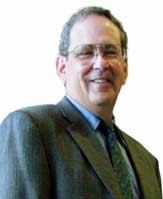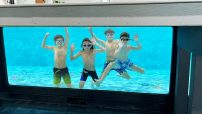You might not guess it by his conservative dress and laid-back demeanor, but Carvin DiGiovanni is a real risk taker.
“It’s not so much writing standards that’s the risky part,” says DiGiovanni, senior director of the Association of Pool & Spa Professionals in Alexandria, Va. “It’s the results of the standards and how the standards might be challenged after the fact.”
DiGiovanni would know. He’s been working with standards since the early 1970s, when the creation of the Occupational Safety and Health Organization and the U.S. Consumer Product Safety Commission ushered in a new market for the safety field.
Within months of being hired at the-then National Spa & Pool Institute, DiGiovanni worked out the kinks in the peer-review process to get some of the pool and spa industry’s first standards ANSI-approved — a goal that had eluded NSPI for years.
When he signed on with NSPI in March 1990, DiGiovanni was simply technical director until the organization’s educational director resigned. With his ever-expanding role, DiGiovanni helped develop and administer NSPI’s Tech I and Tech II service schools, as well as its Professional Pool and Spa Operator program.
But it was a consumer lawsuit in 2003 that really put DiGiovanni where he is today. In 1993, a 14-year-old boy named Shawn Meneely was paralyzed after diving into a neighbor’s pool. The boy’s family sued NSPI — among others — claiming its diving board standard was outdated. The $6.6 million verdict forced NSPI to reorganize under Chapter 11, and re-emerge as APSP.
With the association in flux once again, it’s been a confusing time for some APSP members: First the group formed an entity called the International Aquatics Foundation headed by DiGiovanni, only to reincorporate that body a year later. But despite all the controversy and organizational changes DiGiovanni sees an opportunity.
“We’ve got a lot of fragmentation.” he says. “I think we need to become a unified body — bring it closer together — to improve the industry.”
To that end, he assembled an impressive cross section of industry representatives for IAF. The board included executive staffers from the World Waterpark Association, the National Recreation & Park Association and U.S. Diving, to name a few. He also sought outside officials, such as members of the National Environmental Health Association and the American Hotel & Lodging Association.
While the IAF board has been disbanded, DiGiovanni plans to reconvene the members as an advisory committee to APSP.
His hope is to expand aquatics awareness and seek more legislative support from every industry affected by recreational water standards. “I’m a consensus builder. I base that on my [work] experience,” he says. “Drawing on my experience, I will do whatever I can to make that happen.”— Joshua Keim



